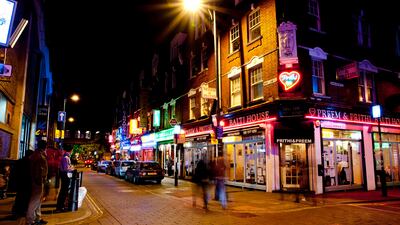One of my favourite things about social media is how, once in a while, you come across a post that encapsulates several offensive tropes in one succinct soundbite. It is so glorious that it becomes the gold standard for how to cram as much wrongness as possible into one message. As such, it serves as the perfect lesson of how hate is manufactured and perpetuated.
“Just tried to film in Whitechapel for over an hour and everyone we asked to interview said they couldn’t speak English,” tweeted “liberty advocate” Jess Gill from her X account on April 25. “How can you have a unified nation [when] we can’t even speak the same language. This is the future of Britain.”
The person posting clarified in response to some pushback: “To all the haters saying I’m lying when I said everyone I asked didn’t speak English when I went to Whitechapel, I encourage you to go to Whitechapel and see for yourself. But honestly, it’s common sense that this would happen when you have millions of people immigrate and set up their own communities outside of British culture.”
There is a lot to unpack in this sparkling paragraph stuffed with tropes to vilify immigrants with the claim that they do not speak English. Not only does this come with a long backstory of considering people who do not speak English as somehow backwards, it also denigrates them by claiming that they want to ghettoise themselves. But as with all such claims, this insinuation is always a paradox: they are segregating as well as taking over.
Whitechapel, for those who are unfamiliar, is a small area in East London, known over the centuries for being a place that has experienced different waves of immigration. These include Huguenots fleeing religious persecution in France, Irish immigrants (slandered as being terrorists) and 19th-century Jewish immigrants fleeing oppression in Eastern Europe, who were criticised for living in ghettoes and not speaking English. There’s a familiar pattern, isn’t there?
The data unequivocally debunks the notion that you can try talking to people for an hour and not one of them can speak English. According to the 2021 census data for Whitechapel, only 1.7 per cent of people over the age of three cannot speak English. I’m no statistician, but the chances that you’d be doomed to meet only those 1.7 per cent for an hour seem very small.
The population of the area is a little more than 18,000, which means that there are about 320 who don’t speak English; it seems fantastical that those would be the exact people where one is filming. And by fantastical perhaps what I mean is the racist fantasies of takeover. After all, the “millions” also seems to be a hyperbolic inflation; more than 44 per cent of people in the area were born in the UK.
If you watch British TV, you might be forgiven for thinking that any news story about immigrants or Muslims is filmed in Whitechapel. The area feels like a second home, we see it so much. So perhaps the residents did what I suspect many of us have done to avoid the awkwardness of being accosted by a stranger asking to interview us by saying we don’t speak English. I mean, avoiding a conversation with strangers is about the most British thing you can do.
In fact, one might wonder if they are in fact leaning into the trope that immigrants don’t speak English and having some fun at its expense – the irony. And that’s even before a cheeky mention of how Brits are famous abroad – even as residents – for not speaking the local language.
Language in this scenario is used as a tool of oppression, to create a hierarchy of superiority and inferiority of worth, exacerbated by the claim that if you do not speak English, you’re not assimilating. The rub of course is that even when English is spoken, the myth that it is not, is perpetuated because it may be spoken in different accents. Protagonists claim that such speech is incomprehensible and not the real thing.
This is linguistic racism, a form of discrimination based on accent or speech patterns, directed at people speaking in non-standard ways who might sound “foreign”. In the UK, it also manifests as an associated guffawing at those with non-standard dialects. It wasn’t that long ago that national broadcasters were required to speak with “received pronunciation”.
When people approached for an interview refuse to cede to entitlement, upset follows. This was seen in a video filmed at a pro-Palestine protest camp at UCLA on April 28. In it, a woman who posts on X as Montana Tucker recorded herself on campus, saying: “I went in with the intention of having honest conversations to try and truly understand each other’s pain and suffering. However, no one would speak to me.”
In the video the protesters, understandably and rightly, direct her to their media liaison desk if she wants to talk, insisting that the press is not allowed into the camp. Ms Tucker says it’s “intimidating and scary” and adds that all she wished was that they could have ended with a hug. When people don’t engage on her terms, rather than their own, she starts crying.
I have a sense that she wanted to be Kendall Jenner, solving racism with a Pepsi, but her heroic moment has been robbed by those intimidating non-communicators. How can she create utopia when they won’t use their words as she wants them to?
My point is not about these specific posts, comments and videos. They are just some of millions of similar takes. In the bigger picture, what the past teaches us about the future is that vilifying language is for the most part a sign of the vilifiers’ disingenuousness and sense of entitlement, and sometimes fakery and hate peddling. The data and the history show it to be so. No wonder it makes them upset and cry.


